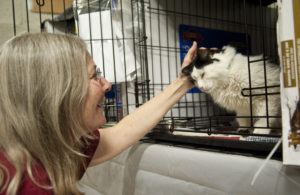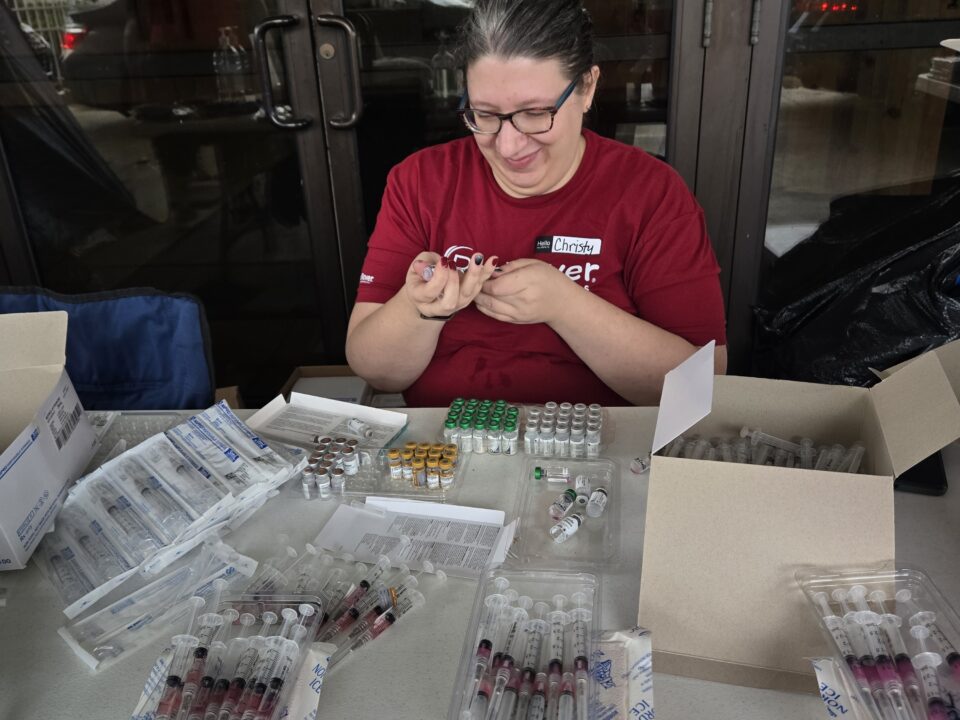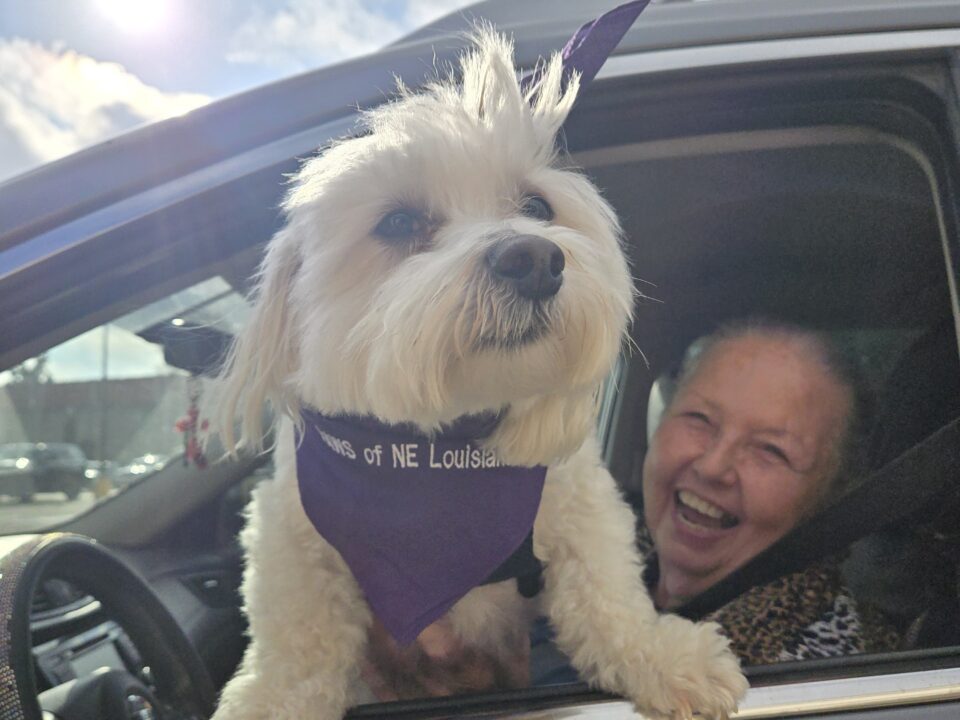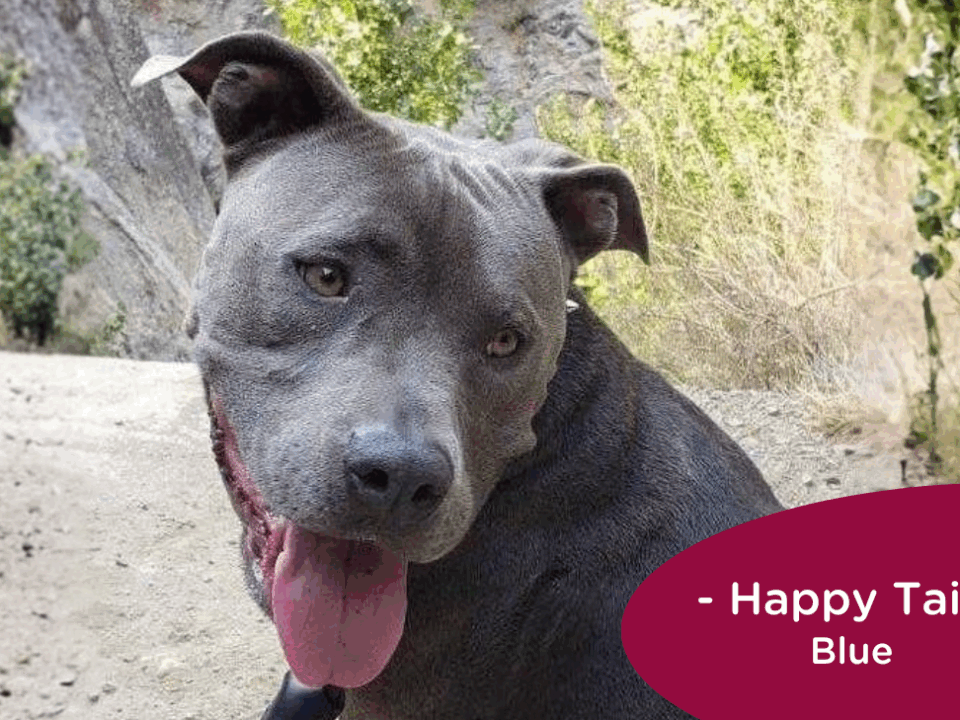Emergency Animal Sheltering in the time of COVID-19
September 10th, 2020
By Beth Gammie, RedRover Director of Field Services
The coronavirus pandemic has upended so much of normal life, and unfortunately disaster response is no exception. Concerns about safely sheltering animals and people during the pandemic are at the forefront for everyone involved.
RedRover has been involved in developing and presenting coronavirus-specific guidance on how counties and cities can safely set up emergency animal shelters this disaster season. We are a founding member of the National Animal Rescue and Sheltering Coalition (NARSC), which was formed after Hurricane Katrina to develop best practices in animal disaster response. When disaster strikes, NARSC also helps coordinate large responses.
Once the pandemic hit the United States, we jumped into action and formed a COVID-19 Sheltering Task Force, and I was chosen to lead it. The NARSC agencies have folks who are very experienced in emergency animal sheltering, and our task force was loaded with national experts. We developed a detailed guidance document for jurisdictions on how to plan for emergency animal sheltering and how to do it safely — focusing specifically on COVID-19 adaptations to our usual practices.
At the end of July I, along with Jennifer Gardner from the International Fund for Animal Welfare, presented our information at a virtual hurricane conference presented by Georgia Technical Institute and Chatham County, GA Emergency Management Agency. We taught an audience of emergency managers how important it is to provide emergency pet sheltering even during the pandemic, and taught them how to lay out their emergency animal shelter in light of COVID-19, including best practices to reduce the risk of transmission. And finally, we taught them how to adapt their shelter operations to reduce or prevent the spread of COVID-19.
I feel proud to be a part of RedRover, and proud that we not only do great work through our own deployments but are also active in improving animal disaster response nationwide.
Learn more about RedRover Responders and our new online volunteer training >>




